3 Reasons Why Your Electricity Consumption May Seem Higher
- Home
- Residential
- Blog
- Archive by Category "Knowledge" (
- Page 10 )
[Post Date]
3 Reasons Why Your Electricity Consumption May Seem Higher

The average monthly household electricity consumption of a 4-room public housing unit was 363 kWh in the month of May 2019 (statistics: SP Group). But sometimes, these monthly bills can go up – seemingly for no reason.
Here are 3 reasons why you could be seeing an increase in your electricity consumption.
Reason #1: You are on an estimated bill
Did You Know?
SP Services undertakes all metering services and meter data management in Singapore.
All household and business electrical meters are read by SP Services once every two months. Which means that your meter readings on the alternate months are on an estimated basis.
If your consumption has been under-estimated and therefore under-billed in one month, you may see a higher consumption on your following bill. Or vice-versa if an estimated bill has been over-billed in the previous month.
The Energy Market Authority (EMA) has a video illustration explaining how this happens.
If you would like to avoid this situation, you can submit your meter readings to SP through this methods.
- Online: Open Electricity Market’s E-services page (For first time user, please register for an e-services account)
- App: You can download the “SP Utilities” App and submit your meter readings once you have register for an e-services account.
Or you can use an Advanced Metering Infrastructure (AMI) Meter. These meters, available at $42.80 (GST Inclusive), allow you to monitor your consumption on a half-hourly basis. Write to us at our contact us page if you would like to have the AMI Meter installed for your household.
Reason #2: Increase usage during school holidays or warmer climate during the billing period
Singapore households tend to use more electricity during certain months of the year
The months of May to July and November to December usually see a surge in household electricity consumption. Do you know why? Two reasons — dry spells and school holidays.
The heat makes people switch on more fans or run air conditioners for much longer. While the holidays may mean TVs, computers and even washing machines running much more frequently, as families relax at home or get more active.
One way to avoid an increase in your electricity bill is to use your electrical appliances more efficiently. Set a timer on your air-conditioner so that it runs long enough to cool down the room. Then use a fan to stay comfortable. Run washing machines only on a full load. Use ovens and microwaves less, and choose more raw foods and salads instead. Both you and your electricity bill will be a lot healthier!
Reason #3: You have a new appliance
Buy appliances with an Energy Label and a high rating of Energy Efficiency to enjoy more cost-savings
Adding a new electrical appliance to your household can also make your electricity bill go up.
Perhaps you bought a bigger capacity washing machine to meet your family’s growing needs? Or a more powerful air conditioner or microwave? Or simply a new, higher-spec TV? It may be just one item, but it can impact your consumption.
Be smart when you buy. Look out for appliances that carry the Energy Label, or a higher Energy Efficiency rating. These give you the performance you need, without adding too many dollars to your bill.
Since you have found out on the reasons on why your electricity bill sometimes is higher than usual, why not read on more for more home energy saving tips?
References:
- Elangovan, N. (2020, June 5) Singapore households generated additional 1,334 tonnes of plastic waste during circuit breaker: Study, Today Online.
https://www.todayonline.com/singapore/singapore-households-generated-additional-1334-tonnes-plastic-waste-during-circuit-breaker
Image Credits: Nylon Coffee Roasters
Source: The Sustainability Project
Top 10 Home Energy Saving Tips To Keep Electricity Bills Low
- Home
- Residential
- Blog
- Archive by Category "Knowledge" (
- Page 10 )
[Post Date]
Top 10 Home Energy Saving Tips To Keep Electricity Bills Low

On average, household expenses in Singapore can make up at least 14.5% on your monthly spending. This would mean that an average 5 room flat in Singapore would be raking up $1,000 in electricity bills per year. Such high spending on electricity bills can be avoided as long as we make a conscious effort on our electrical consumption habits.
Saving on electricity bills can be easy especially when these savings can be used for the finer things in life. What do you do to save money on your electricity bills?
Here are Geneco’s 10 tips on how to avoid sky high electricity bills.
Tip #1: Doing your laundry smart
Many believe that doing our laundry in hot water can result in cleaner clothes. However, it could make stubborn stains like coffee stains permanent. Additionally, nearly 90% of the energy consumption of a washing machine goes to heating the water. The next time you do your laundry; do consider switching your washing machine settings to cold water instead.

Tip #2: Iron it Out
Start your ironing with clothes that require lesser heat such as silk and wool before moving on to fabrics that require more heat such as cotton. This would prevent unnecessary heating, cooling and re-heating again which would consume more electricity.
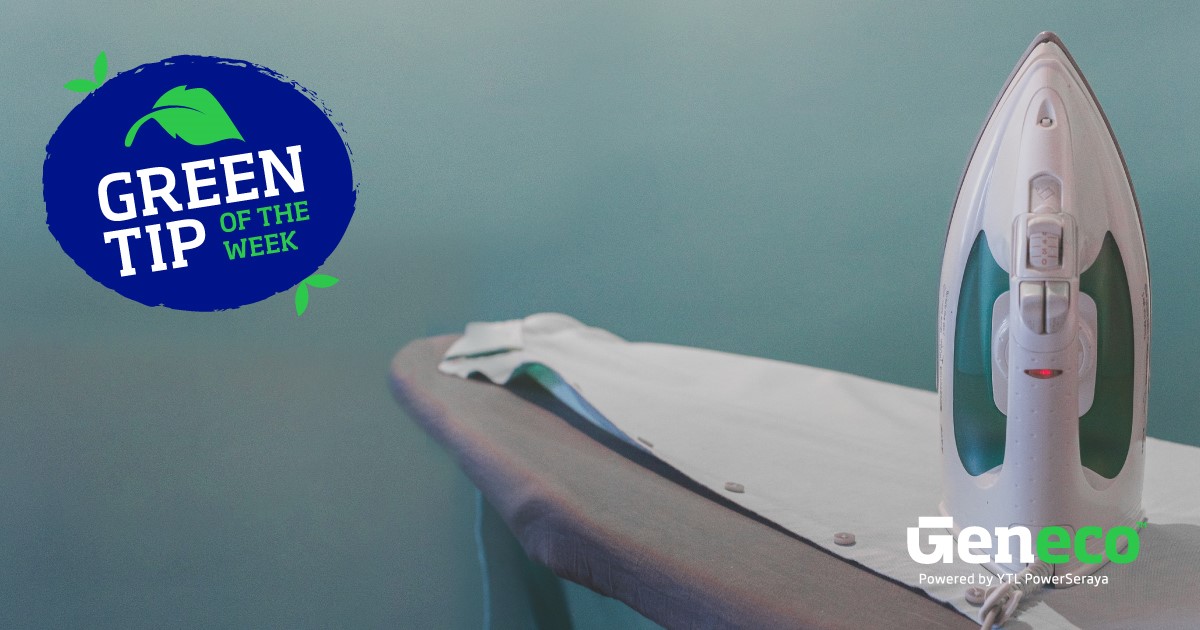
Tip #3: Light more for less
If you haven’t switched the lights in your house to light-emitting diode bulbs (LEDs), now is the time. They use 85% less electricity than incandescent bulbs and last 25 times longer. Under NEA’s Switch and Save – Use LED (SSUL) programme, $25 vouchers for LED lights have already been sent to some 80,000 households living in one-room and two-room HDB flats. NEA will extend the programme to three-room HDB households as well. Light up your house with LED lights and save so much more on your electricity today. Read more about our tips on buying household appliances.
Tip #4: Run your refrigerator for less
Hiding in the corner of all our kitchen is our trusty refrigerator. They are always overlooked when it comes to being more environmentally friendly, however, refrigerators are in fact, are one of the household electrical appliances that consumes the most electricity. Constant opening and closing of the fridge wastes an enormous amount of energy, and can cause dust to build up. The more dust we have on the refrigerator coils, the more energy is required to cool the refrigerator, driving the power bill up.
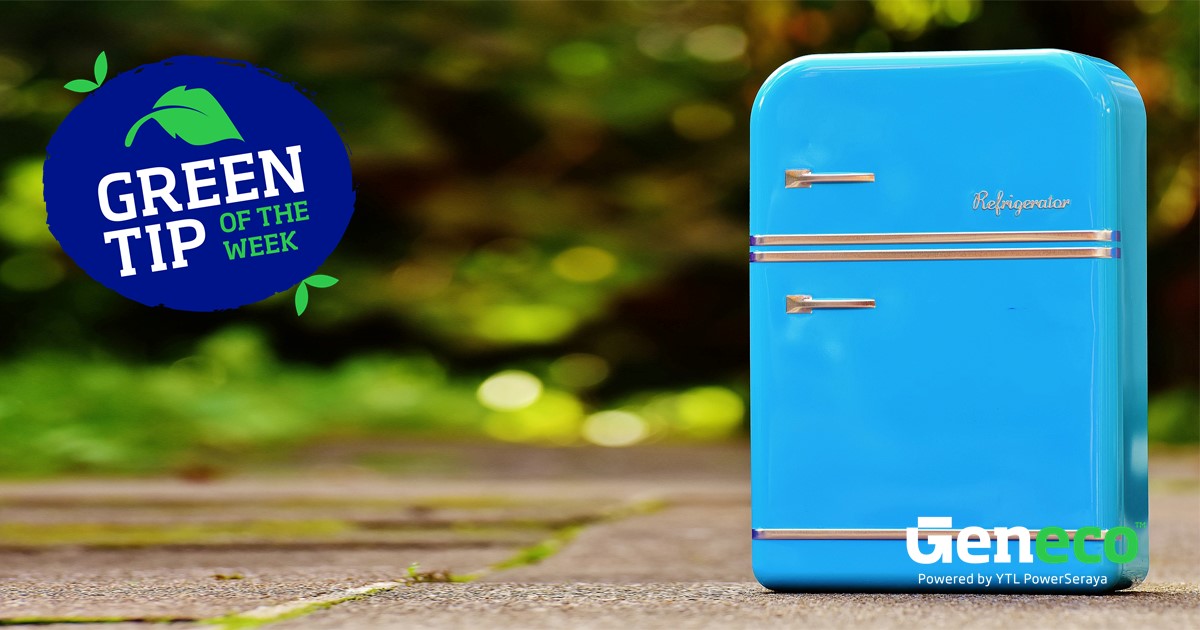
Tip #5: Bye Bye to standby
75% of the electrical use by home electronics occurs when they’re on standby. These “energy vampires” suck electricity all day long—costing you an extra $100 each year. So if you’d like to avoid burning a hole in your pocket, unplug your electronics or plug them into a power strip, then turn off the strip.
Tip #6: Use the right ring for the right thing
If your cooker has a small ring, use a small pan. You might only be heating up a small meal, and doing so in a big pan wastes a lot of energy. Conversely if you try and heat a large pan on the small ring you’re more likely to end up heating for longer than saving any money or energy.
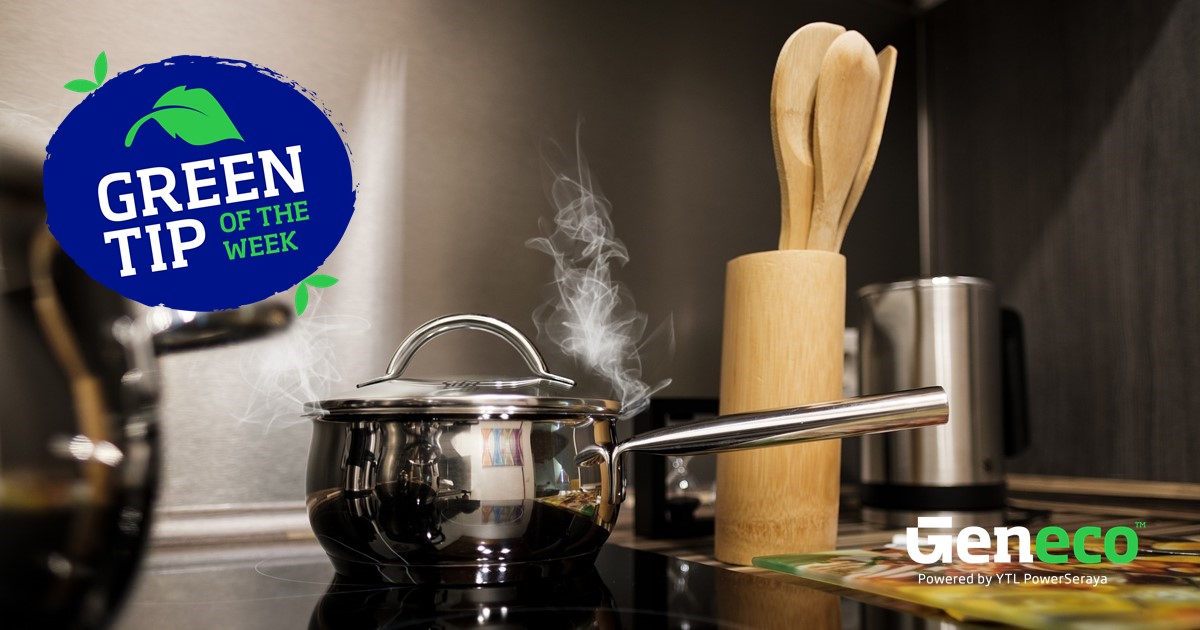
Tip #7: Don’t overpay for the electricity you are using
Choosing a good electricity retailer in the Open Electricity Market can be just as important in getting more savings on your electricity bills. Visit geneco.sg for the most competitive electricity prices that are tailored for you today.

Tip #8: Buying energy efficient appliances
Throwing out a perfectly good appliance won’t save you much money, but when it is time to swap, going for one with a high energy-efficiency rating can be worth the investment. Lookout for the NEA energy label on appliances such as TVs and refrigerators. The more ticks the device has, the less electricity you consume and the more money you save.
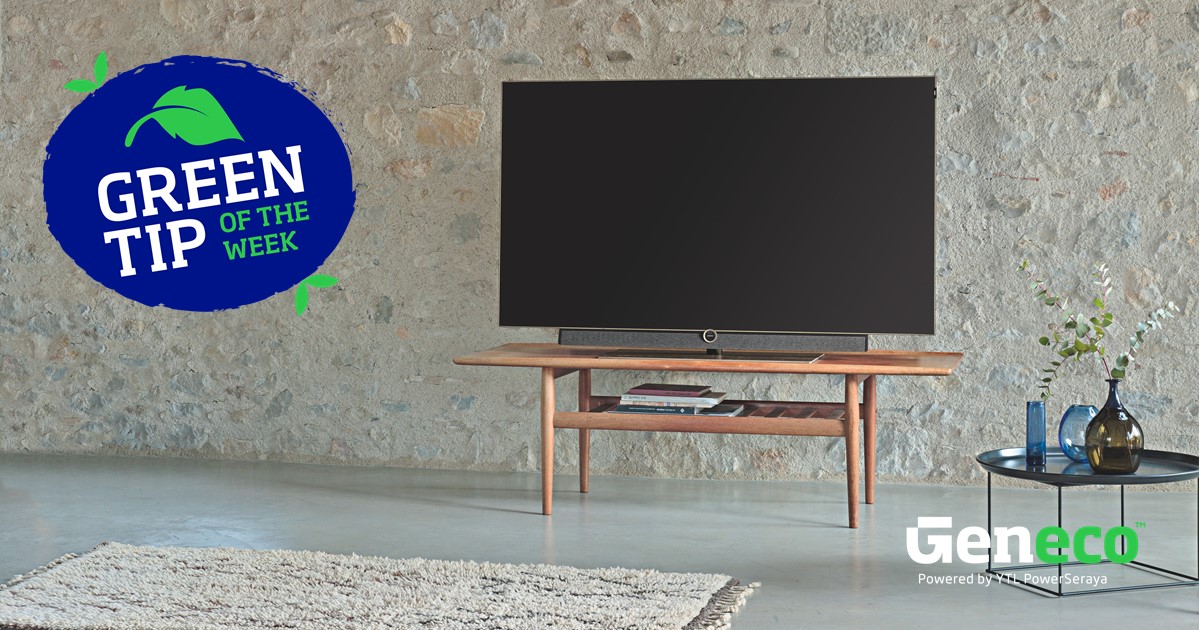
Tip #9: Let there be light
Remember to clean your lamps and light fixtures regularly as dust on lamps reduce light transmission. Alternatively, do consider using natural light for your lighting needs instead to save even more on electricity!

Tip #10: Go smart with smart meters
Did you know that you have an option to switch to an AMI meter, or smart meter?
With smart meters, your electricity consumption is measured real-time and remotely read at half-hourly intervals. By monitoring your electricity consumption usage, you will be able to eliminate electricity wastage, thus lowering your bill.
Switch Over to Geneco Today.
You have the power to make a change with Geneco, a top electricity retailer with 48 years of experience.
Geneco is one of Singapore’s top electricity retailer, belonging to a global network of energy and utility companies known as YTL Power International, which is a subsidiary of the YTL Group. Geneco’s parent company YTL PowerSeraya is also one of Singapore’s first and largest electricity generators, with a licensed generating capacity of 3,100 MW. By switching over to Geneco, you will be able to enjoy 30% savings on your electricity bills, measured against the regulated tariff. Look for our most savings plan, Get It Fixed 24 at a fixed rate of 17.98¢ per kWh, (as of 1 March 2020). With over 48 years of experience in the energy business, you could say that we know a thing or two about power.
References:
- Elangovan, N. (2020, June 5) Singapore households generated additional 1,334 tonnes of plastic waste during circuit breaker: Study, Today Online.
https://www.todayonline.com/singapore/singapore-households-generated-additional-1334-tonnes-plastic-waste-during-circuit-breaker
Image Credits: Nylon Coffee Roasters
Source: The Sustainability Project
3 Tips You Need To Know When Buying Energy-Saving Household Appliances
- Home
- Residential
- Blog
- Archive by Category "Knowledge" (
- Page 10 )
[Post Date]
3 Tips You Need To Know When Buying Energy-Saving Household Appliances

The average monthly household electricity consumption of a 4-room public housing unit was 372.9 kWh in 2017 (statistics: Energy Market Authority) While the consumption is lower than that of the same 4-room HDB unit in 2015 at 387 kWh, there are many ways you can save big on your energy costs while helping the environment at the same time. Here at Geneco, we share 3 tips to cut back your energy use and reduce your bills.
Tip #1: Changing out your light bulb
Did You Know?
LED bulbs use up to 85% less electricity than incandescent light bulbs to produce the same amount of light, and can last about 20 times longer.
With the adoption of energy-saving applicances such as LED light bulbs by almost every major applicances brand, it may sometimes be easy to overlook the From 2023, all light bulbs sold in Singapore are likely to be as energy efficient as a light emitting diode (LED) bulb. However, buying a simple light bulb is not so simple anymore. As technology has advanced and environmental awareness has increased, energy efficiency has become a big factor for consumers. Choose energy efficient lamps such as LED bulbs over incandescent or halogen lights. Using a 42W incandescent light bulb instead of a 7W LED bulb can save your over $100 per bulb per year*. (image and information source: Straits Time)
Tip #2: Consider the needs of your family and get the appropriate sized fridge
Do you really need such a big refrigerator? Consider this before you make the decision on which refrigerator to buy. When buying a refrigerator, energy efficiency is achieved best when considering freezer placement.
Do you know?
The most energy efficient refrigerator style is a top-mount freezer refrigerator as it uses 10-30% less energy than the same models of side-by-side refrigerators.
Choosing the smallest model refrigerator that meets your needs would save you much more in the long run. Also, leave at least a 1-inch clearance around the unit for adequate airflow.
Before you purchase the fridge, question whether additional features, such as automatic icemakers and through-the-door dispensers are needed as they increase energy use.
Tip #3: Changing your air conditioner
Choose the right cooling capacity is paramount in buying air-conditioners. Oversized air-conditioners would result in wastage of electricity when running it. Likewise, an undersized air-conditioner would be overworked, leading in inefficiency. From 1 January 2008, household air-conditioners and refrigerators that are sold in Singapore must be affixed with an Energy Label under the Environmental Protection and Management Act.
Do you know?
Look out for the energy-saving setting in your air-conditioners. This means once once your room has cooled off, the unit will turn off not only the compressor but also the fan thus conserving energy.
Air-conditioners with more ticks on the energy label are more energy efficient. A 2-tick model will cost you about $270 more in electricity bills a year* as compared to using a 5-tick air-conditioner. You can view the list of air-conditioner models and their energy efficiency ratings at www.nea.gov.sg/els
Here’s a bonus tip!
Keep your household electricity bill low consistently by switching over to Geneco for immediate savings.
In 2017, Energy Market Authority (EMA) rolled out The Open Electricity Market that allows you to enjoy more choices and flexibility when buying electricity. This translates to immediate savings against the regulated tariff. i.e. 25.52 cents per kWh effective from 1 Jan – 31 Mar 2019 (incl. GST), and managing your household finances lower. Visit https://genecoprdz.azurewebsites.net/open-electricity-market/ to find out your eligibility.

You have the power to make a change with Geneco, a top electricity retailer with 48 years of experience.
Geneco is one of Singapore’s top electricity retailer in the Open Electricity Market, belonging to a global network of energy and utility companies known as YTL Power International, which is a subsidiary of the YTL Group. Geneco’s parent company YTL PowerSeraya is also one of Singapore’s first and largest electricity generators, with a licensed generating capacity of 3,100 MW.By switching over to Geneco, you will be able to enjoy savings of over 30% off your electricity bills, measured against the regulated tariff. Look for our most savings plan, Get It Fixed 36 at a fixed rate of 17.98¢ per kWh, (as of 1 July 2019) or with our Get Free Sundays plan, never worry about paying for electricity on Sunday again. With over 48 years of experience in the energy business, you could say that we know a thing or two about power.
References:
- Elangovan, N. (2020, June 5) Singapore households generated additional 1,334 tonnes of plastic waste during circuit breaker: Study, Today Online.
https://www.todayonline.com/singapore/singapore-households-generated-additional-1334-tonnes-plastic-waste-during-circuit-breaker
Image Credits: Nylon Coffee Roasters
Source: The Sustainability Project
5 Tips to Save Energy and Lower Your Electricity Bills with Geneco
- Home
- Residential
- Blog
- Archive by Category "Knowledge" (
- Page 10 )
[Post Date]
5 Tips to Save Energy and Lower Your Electricity Bills with Geneco
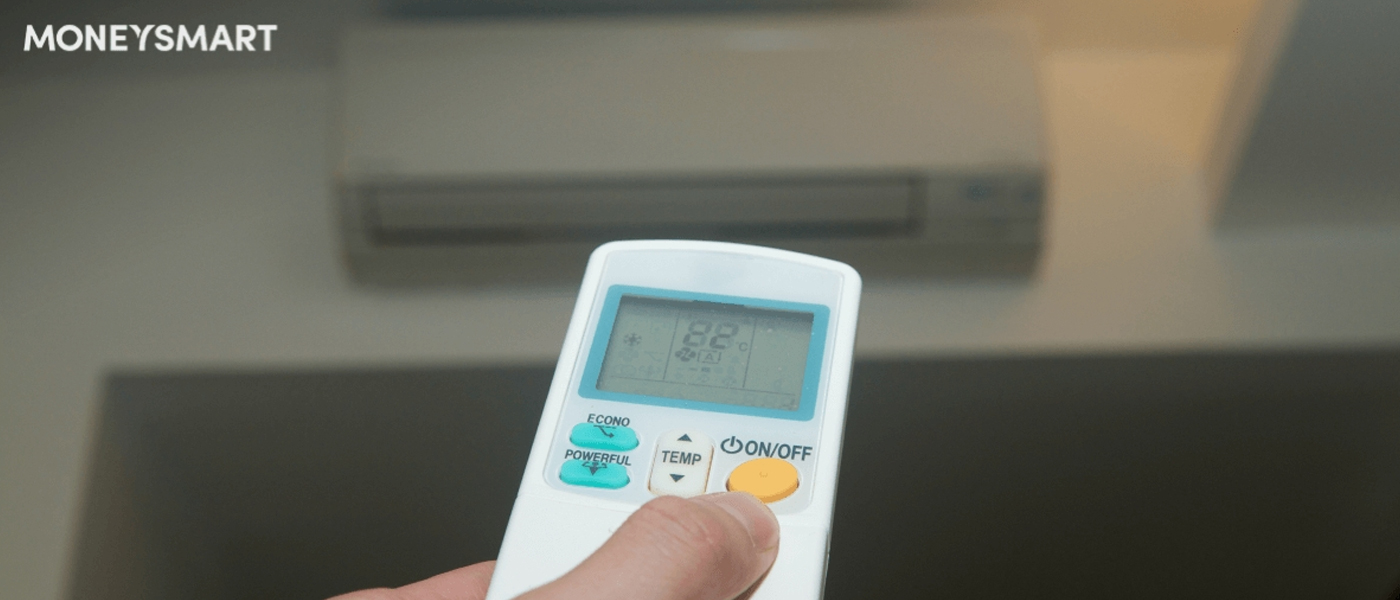
This post appeared first on the MoneySmart blog at https://blog.moneysmart.sg/budgeting/save-energy-lower-electricity-bills-geneco/
The advent of the full roll out of the Open Energy Market (OEM) is another big step in the right direction of giving consumers more
choice when it comes to managing their finances. In this case, it’s in the area of the cost of energy consumption, and boy do we need it.
If recent data is anything to go by, saving money on your electricity bill is something that Singaporeans need to probably pay a little more attention to. According the National Environment Agency (NEA), Singapore’s household electricity consumption has increased by about 17% over the past decade. Choosing an electricity plan that suits your needs is definitely a good way to start making sure you’re not overpaying, and this goes beyond just looking at the rates advertised by suppliers.
But another big contributing factor to the overall cost of your electricity bill is of course your lifestyle habits as well. Here’s what you should do or look out for in order to save more on your monthly electricity bill.
1. Lock in your savings with the most competitive fixed plan in Singapore
One of the best things to come out of the OEM is the fact that you can now choose a plan that suits your needs, rather than being subjected to whatever electricity tariffs were previously set.
Currently, Geneco offers the best 24-month fixed plan in Singapore, at a price of 17.78 cents per kWh. And given that you’re always going to need power in your home, why not take advantage of this right now? You can read our assessment of what else you need to take note of when choosing a price plan, and Geneco’s site makes it extremely easy for you to sign up for a plan of your choosing.
2. Air-conditioning
You weren’t expecting to see anything else at the number one spot for energy guzzlers right? We get it. Singapore is a sauna of Death Star proportions, and I will be the first to admit that I leave my air-conditioner on for an unreasonably long period of time at home.
The 2017 NEA survey of 550 households revealed that air-conditioners accounted for 24% of the energy consumption in a home. Back in 2014, in a bid to help consumers better identify more energy efficient home appliance models, and also to encourage suppliers to offer more efficient products, the NEA revised their energy rating system for air-conditioners, refrigerators and clothes dryers.
Getting an air-conditioner with more ticks in their rating might cost you slightly more, but the savings in the long run are definitely worth it, and buying a 5-tick aircon can save you around $270 a year. But of course you and I both know what the ultimate way to save energy on aircon usage is.
According to the Energy Efficiency Programme Office (E2PO), using a fan instead of an aircon can save you about $400 a year. Of course, I’m not going to preach about switching devices when I am obviously not going to do it myself.
One good compromise that I have started to practice is actually switching my aircon off after the room has cooled, or setting a timer and then using my fan to circulate the air in the room. This way you don’t have a fan just blowing hot air around your room, while also minimizing the use of your air con. This could save you up to $340 a year.
3. Refrigerators
Refrigerators came in a not-so-close second in NEA’s survey, clocking about 17% of total energy consumption. That’s still a pretty significant number. Now you might be thinking “Well I obviously can’t turn off my fridge intermittently right? That’s just ridiculous.”
When it comes to saving energy on refrigerator usage, I’m quite certain nobody in their right mind is going to be cycling their fridge’s power on and off. What can help you to minimize the energy consumption of your refrigerator, however, is efficient usage of your fridge. Here are some quick tips on making sure you don’t overwork your refrigerator:
- Minimize door openings – every time cool air escapes, the fridge works harder to replace the air, so keep the door open no longer than necessary.
- Keep the refrigerator full, but don’t overpack it – a full fridge retains cold better than an empty one, but if your fridge is too full, it will obstruct the circulation of cold air inside.
- Separate your fridge from heat sources – a 10 degree increase in surrounding temperature could result in up to 20% higher energy consumption
- Allow hot foods to cool before placing them in the fridge – placing hot foods inside immediately causes the temperature to go up temporarily, and makes your unit work harder.
4. Water heaters
This came as a little bit of a surprise to me, but water heaters accounted for about 11% of electricity consumption. That being said, I know quite a number of people who just leave their water heaters on the entire day, even when they out of the house for work!
You could save about $110 a year just by only turning the storage water heater on when you need it, and turning it off after usage. There’s really no good reason at all to leave it on the entire day (unless there’s someone in your house who enjoys bathing continuously the whole day, which would present a whole different problem altogether).
5. Standby Power
You might not realise this, but just because you turn devices off, it doesn’t mean that it isn’t still consuming power. Standby power refers to the way electric power is consumed when appliances are turned off or are in standby mode.
It might seem like a small thing on a per-device level, but if you multiply that by the number of devices that are hooked up to a power source – TVs, computers, fans, kitchen appliances, just to name a few, this can add up to a significant amount. Using something like a power strip that connects multiple devices and allows you to cut the power at one go can help you to reduce this unwanted usage.
Conclusion
Apart from adapting your lifestyle behaviour, there are also many different power-saving innovations that are helping consumers to save on their electricity. Simple things like using LED lights can save you a huge amount of energy. At the end of the day, it’s about being aware of your consumption habits to ensure that you are not using more than you need.
Want to save more on your electricity bill? With the new Open Electricity Market, choosing the right energy provider to suit your needs can help you with significant cost savings. Find out more about what Geneco has to offer.
*Price is correct as of 31 Oct 2018 and is subject to change.
Image Credits: Nylon Coffee Roasters
Source: The Sustainability Project
